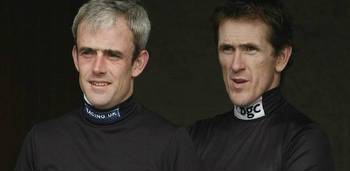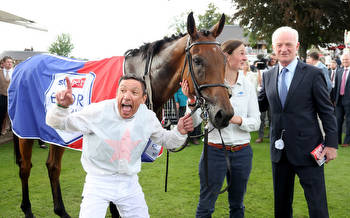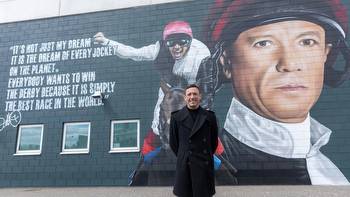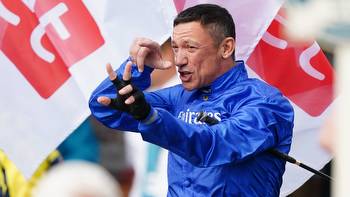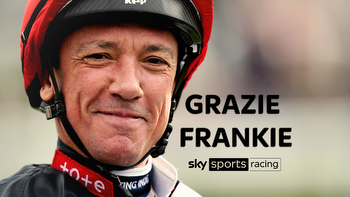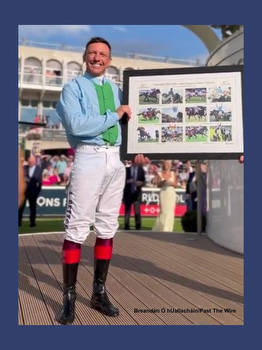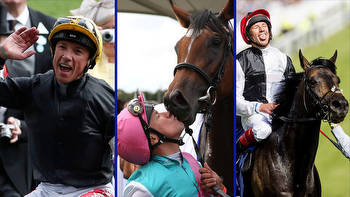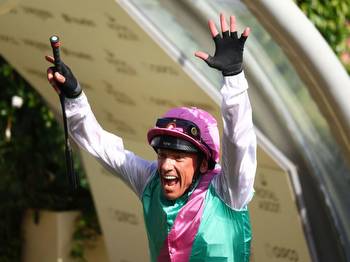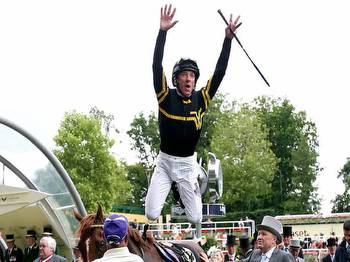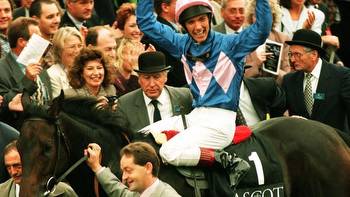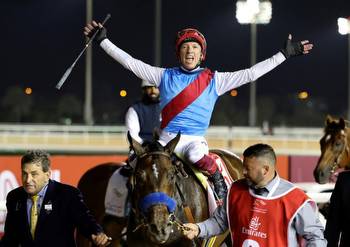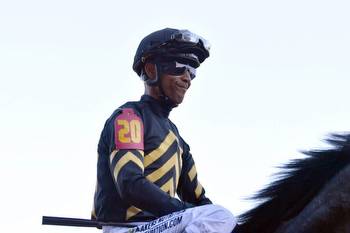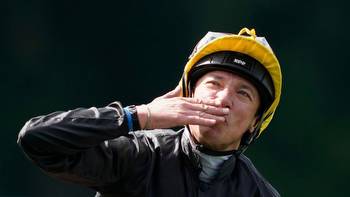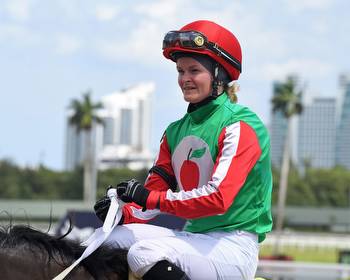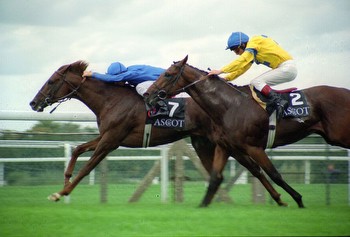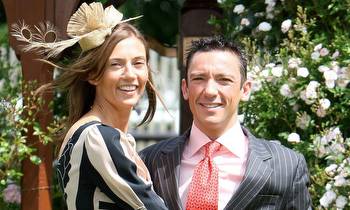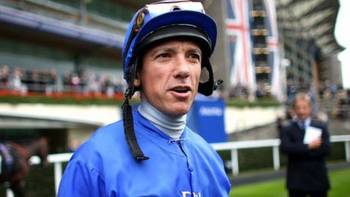THE EIGHTH POLE: A 15-year-old Derby winner? It happened back in 1892.

Alonzo “Lonnie” Clayton was the youngest jockey to ever win the Kentucky Derby, guiding Azra to victory in the big race at the age of just 15 in 1892.
Clayton got his start in riding at 12, following in his brother’s footsteps by becoming an exercise rider, and later became a pro jockey in 1890.
Azra and his pilot would go on to twice win the Clark Handicap at Churchill Downs and the Travers Stakes at Saratoga. Clayton also won numerous other big races throughout the 1890s.
But, at the turn of the century, a trend toward using mostly white jockeys emerged and owners employed fewer and fewer of the Black jockeys like Clayton who had dominated horse racing throughout the previous century. Some Black jockeys went to Europe to ride, while others stayed in the industry with far less glamourous positions.
Clayton’s success had enabled him to purchase an elegant house in Little Rock, Arkansas, but the shift away from Black jockeys prevented him continuing to make a decent living from riding horses and he had to sell his home and business properties. He lived out his last remaining days working as a hotel bellhop n California, where he died in 1917 of tuberculosis.
‘I wanted to win one race’
Anthony Knott was a dairy farmer and part-time jockey who rode in races on the southwest side of England for 28 years.
In all that time, Knott had never won a race or even hit the board. A fifth-place finish was the best he could muster up after quite a few years in the saddle.
But on Nov. 21, 2008, at Wincanton Racecourse in Somerset, the rider finally won his first race at the age of 44 aboard 7/1 shot Wise Men Say in the Hands and Heels Jumps Series Novices’ Handicap Hurdle. Unbelievably, he almost gave away the win due to a premature celebration in the final stages of the race.
A furlong out from the wire, Knott found himself in front of 10 rivals and it was very unfamiliar territory. As he approached the finish, he stopped riding, stood up in the irons, and waved to the crowd. His early celebration allowed for a horse to sneak up the rail and almost snatch the victory. But Knott snapped back to reality and prevailed by 1-3/4 lengths on the wire.
“I had no intention of doing that (waving), but the vicar and all my friends came running from the bar and there was a tremendous roar from the crowd,” he told the Daily Mail at the time. “You wave to people when you pass them in our village and I was just doing that. ... I wasn’t thinking straight for a minute and then I thought, ‘Oh God, it’s not over yet,’ and I could hear another horse coming up behind me so I set back down and got on with it.”
He didn’t worry about seeking a second victory, either: “I wanted to win one race. I’ve done that now so I think I’ll leave it at that,” he told the newspaper.
Jockey trickery
Angel Jacobs was an amateur jockey who started in 21 races and claimed to be the godson of Hall of Fame rider Angel Cordero Jr.
But he attracted a fair amount of attention with his riding style as he sure didn’t seem like an inexperienced apprentice who deserved a seven-pound weight break. He was at ease and very smooth, plus he knew things a new apprentice rider would never know.
After winning a race at Aqueduct in 1996, Jacobs was exposed as a fraud. He was actually a 29-year-old ex-professional jockey from Puerto Rico named Angel Monserrate. He’d been banned from riding in the United States for a drug offense in 1995, but came back a year later and also rode under the name Carlos Castro.
He was immediately taken out of Aqueduct in handcuffs and arrested for forgery, criminal trespassing and tampering with a sporting event. He was also given a 10-year worldwide ban by the Jockey Club.
The ‘Magnificent Seven’
Frankie Dettori achieved the impossible and made history on Sept. 28, 1996, when he won all seven races on the card at the Ascot Festival in Berkshire England.
The feat is known as the “Magnificent Seven,” and several lucky bettors cashed in on the longshot wager. They received the generous odds of 25,051 for every dollar and, reportedly, the bookies got crushed paying out on the exotic wager.
Dettori completed his seventh victory that day aboard a horse named Fujiyama Crest, and he would never forget him. Five years after Dettori’s spectacular day at Ascot, he learned Fujiyama Crest was heading to the sales ring.
In the summer of 2000, Dettori bought the horse and retired him. He became the family’s pet on Dettori’s farm in Newmarket and was spoiled rotten.
“He’s been a real family pet out in the paddock and all my children have sat on him,” Dettori told the Thoroughbred Daily News. “He died peacefully in his paddock. He’s been at my home since he went up for sale 15 years ago. He changed my life. There would’ve been no ‘Magnificent Seven’ without him.”


